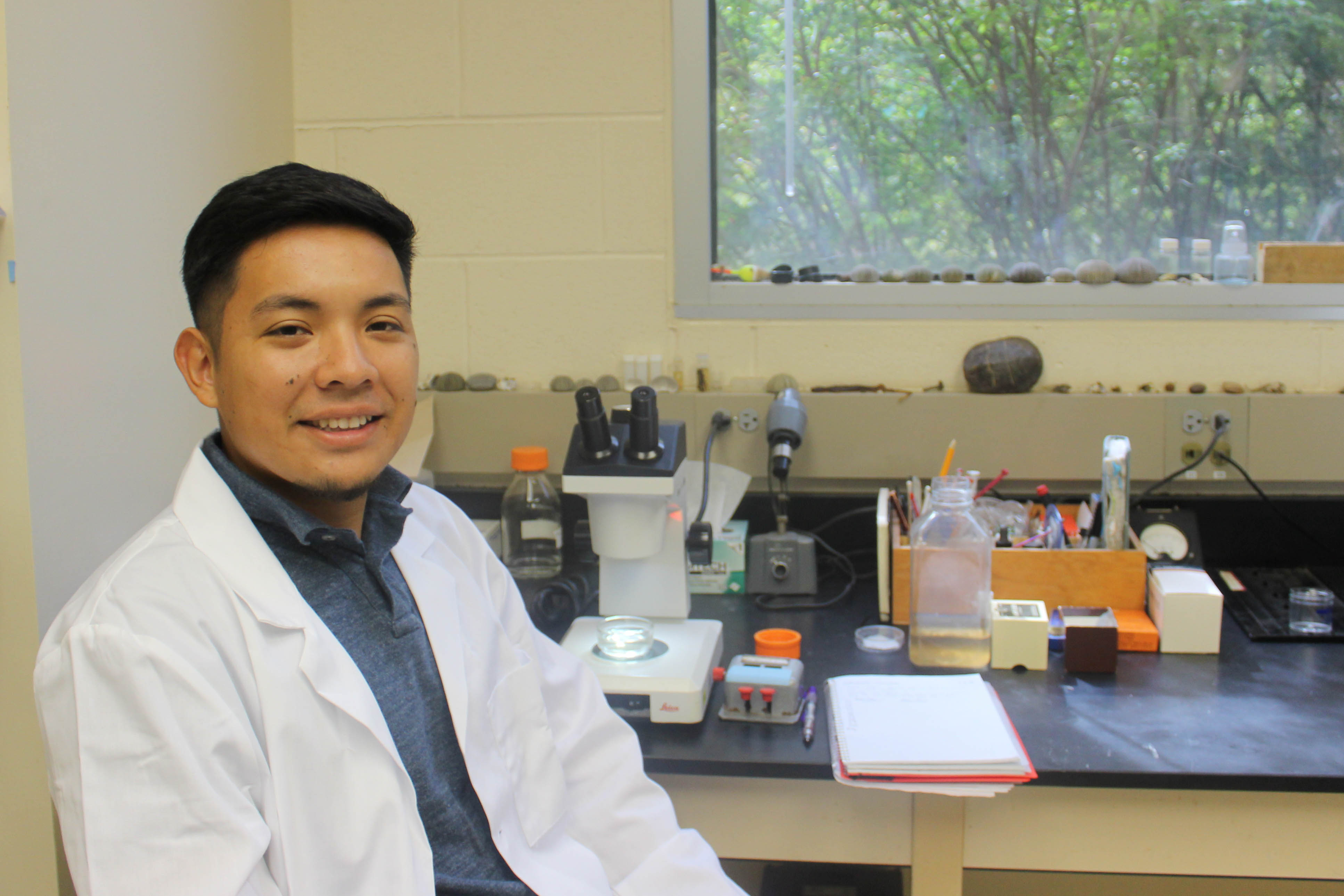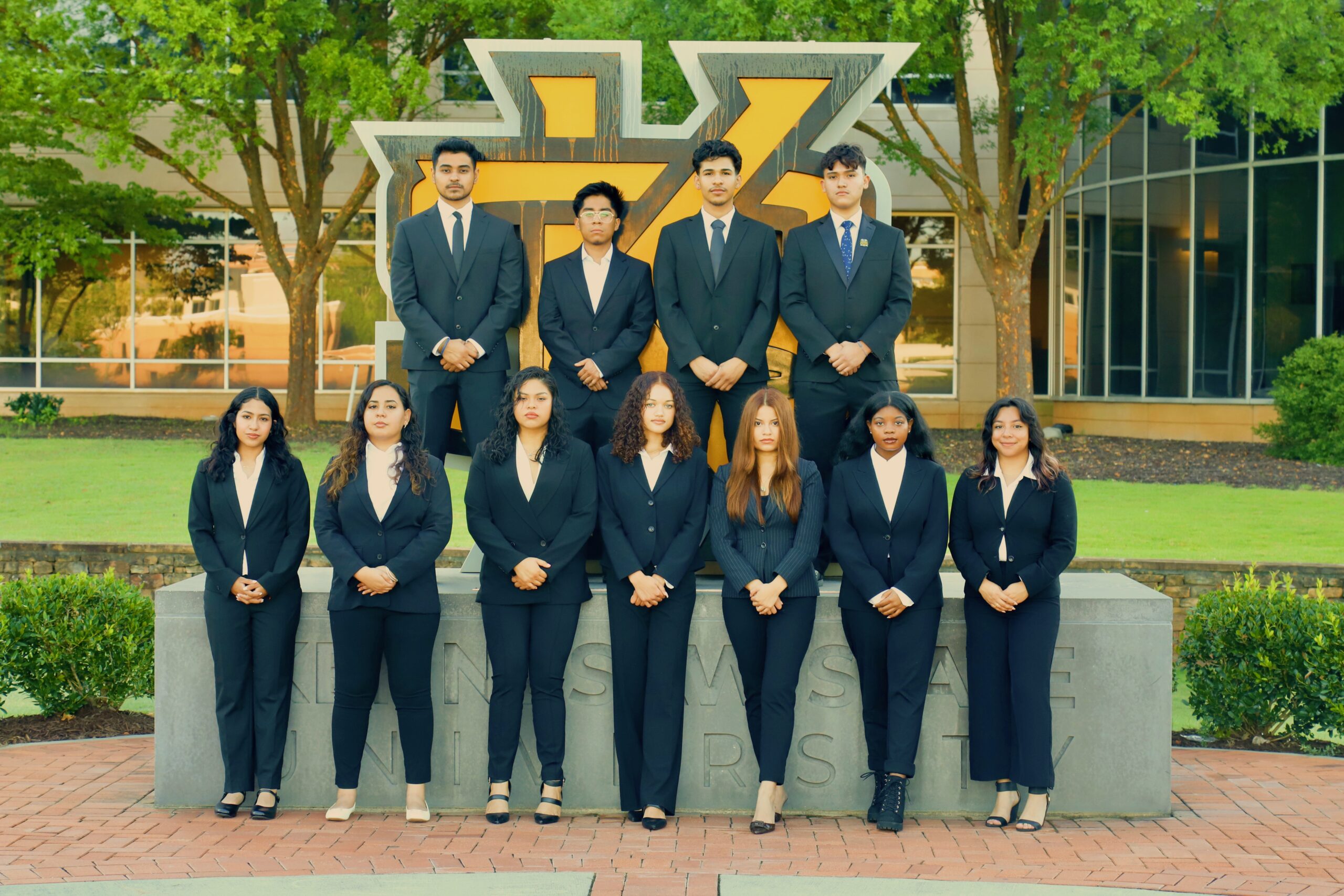Imagine working hard your entire life to have your dreams taken away because of where you come from.
This was the reality faced by KSU student Tony Albarca just last year as he anxiously watched the Trump administration end the DACA program.
During the process, Albarca feared facing deportation, which would have meant losing his opportunity at an education and being taken away from his wife.
In Sept. 2017, Albarca spoke about his experience as a Deferred Action for Childhood Arrivals recipient. Almost a year later, we caught up with Albarca, who is now a senior biology major in his final semester.
He has changed his concentration from veterinary science to a focus in ecology, specifically in bioenergy and cites his love for the outdoors and the environment as the reason for his field of study.
“I have faith that scientists and engineers will reach a breakthrough and develop new solutions,” Albarca said.
Albarca has also gotten married and moved to Doraville, Georgia, in the past year.
He was able to renew his DACA status over the summer, allowing him to reside another two years in the U.S.
Still, after his DACA status ends in 2020, Albarca could face deportation as someone who is undocumented.
In the process of renewing his DACA status, Albarca had to submit paperwork proving that he hasn’t left the U.S. since his arrival at five years old. He recalled having to visit his old elementary schools and middle school to pull paperwork and each award he received in school.
Albarca also had to submit to a background check, register for selective service and gather letters of recommendation. Applying for and renewing DACA was a time-consuming process.
“My family and teachers motivated me to push forward,” Albarca said. “They pushed me to do research and apply for scholarships and colleges even though my legal status did not qualify me.”
Although Albarca has lived in Georgia since his arrival, he still pays out-of-state tuition despite his family paying state taxes. His original goal was to go to UGA, but he wasn’t allowed to because of a 2010 state law prohibiting undocumented students from attending Georgia’s top five schools.
While thankful for his experience at KSU, Albraca believes the law is damaging to Georgia because it motivates potential students to move to other states.
Albarca explained that while DACA is not accepting new recipients, it can still be renewed by those who currently have it — even as some Congress members are now trying to put an end to renewals.
Using his personal experiences as motivation has led him to become an active member of movements for immigrants’ rights. Albarca has participated in phone banks calling local representatives, collaborated with Latin fraternity Lambda Theta Phi to throw immigration policy awareness events and has protested at Atlanta’s “Families Belong Together” rally.
“My struggles ignited my passion for immigrant rights,” Albarca said. “It empowered me to learn how to be a more politically involved citizen.”
Albarca explained that growing up undocumented was not always a comfortable experience, especially when he would see stories in the news of families taken from their homes in the middle of the night.
“I always felt like in high school I had to look over my shoulder,” Albarca said.
He expressed that he does not want other kids to go through the same fear he did and believes that the DACA program offered many kids a way to continue their education in a country that would otherwise turn a blind eye on them.
For information on how to support undocumented immigrants visit riseandresist.org/abolishice.




